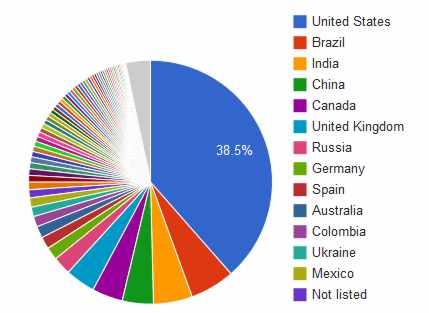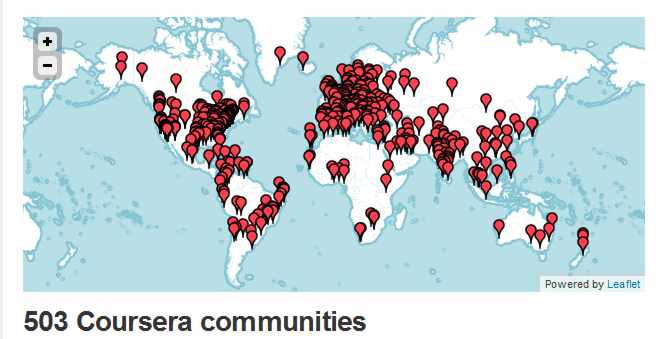| Coursera's Machine Learning Course Runs Again |
| Written by Sue Gee | |||
| Friday, 24 August 2012 | |||
|
Andrew Ng's popular online course on Machine Learning started again this week. There's still time to enroll and catch up with the new cohort of students so what can you expect if you sign up. This time last year a record breaking 104,000 students enrolled last autumn in the first interactive online version of the Machine Learning Course devised and taught by Stanford University professor, Andrew Ng.
The latest presentation of the course, now under the auspices of Coursera, the online educational initiative founded by Andrew Ng together with Daphne Koller, also a Computer Science professor at Stanford, can be considered a third-generation online course. It is based on Andrew Ng's Machine Learning Class taught at Stanford, where it typically has an enrollment of 350 students. Since 2008 its video lectures have been available on You Tube and have been watched by over 200,000 people. In its first makeover, the 2011 online presentation, 13,000 students gained certificates and in April 2012 it was newly reworked in the Coursera format. Coursera now has courses offered by sixteen universities (see Coursera Expands Partner Network) and Machine Learning sports the Stanford University banner. Now in its second Coursera presentation the content is delivered as video - much of it with Andrew Ng annotating per-prepared slides - with embedded multiple choice questions to reinforce learning (sorry about the pun). Two topics are covered per week; around 2 hours in total broken down into chunks of around 10 minutes. There are also two types of weekly assignments - review questions that you can repeat as often as you like and programming exercises in Octave. a language which is introduced in the second week of the course. The grading policy means that programming counts for two-thirds of the score. Students are expected to know how to program and the course information also suggests it should be possible to get full marks for the programming exercises. To receive a statement of accomplishment, your final score must be at least 80% of the maximum possible score. If machine learning isn't your interest, three other programming-related courses start next week:
According to its blog, Coursera now has 1 million enrolled students in 196 countries. The USA accounts for the biggest proportion of students (38.5%) with Brazil (5.9%), India (5.2%) China (4.1%), Canada (4.1%) and United Kingdom (4%) being the next five countries.
While English is the language used in the videos the volunteer translator community has provided subtitles in many languages. The blog also notes, on Facebook, 42% of its fans are female, which is a pleasingly high proportion given that most of its courses are in STEM subjects.
Students seem keen on the community aspects as well as their academic studies and, to supplement the online discussion forums associated with each course, the idea of Coursera communities with face-to-face meetups is spreading as this map indicates. The largest communities are in Stanford, San Francisco, New York, Bangalore, Moscow and London. So online learning doesn't have to mean isolated learning. Two of the I Programmer team are doing the course this time around. So see you in class and look out for our review of what it's like.
More InformationRelated ArticlesCoursera Expands Partner Network Daphne Koller What We Are Learning From Online Eduction Coursera Raises $16M and Plans Wide Range of Courses
Comments
or email your comment to: comments@i-programmer.info To be informed about new articles on I Programmer, install the I Programmer Toolbar, subscribe to the RSS feed, follow us on, Twitter, Facebook, Google+ or Linkedin, or sign up for our weekly newsletter.
|
|||
| Last Updated ( Friday, 24 August 2012 ) |






